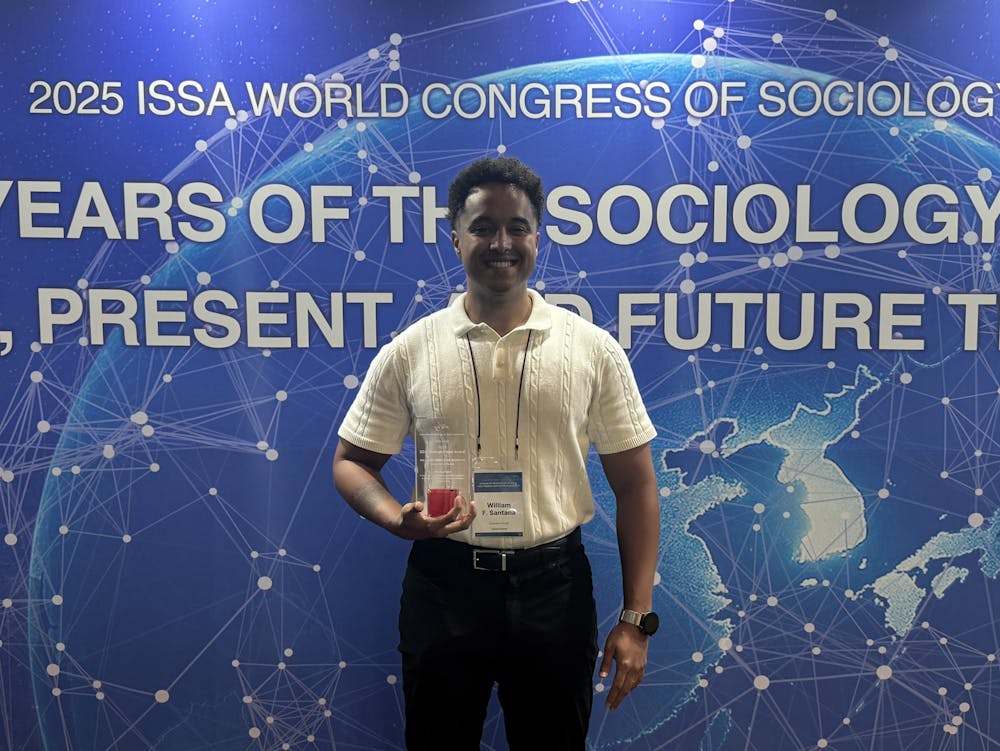William Santana, a Brazilian international Ph.D. student in sport management, witnessed firsthand the obstacles athletes face when trying to report harassment or abuse.
Santana worked as a cheerleading manager at the São Paulo State Federation of Sports after graduating from the University of São Paulo in 2018. As a former gymnast, he was chosen due to the sports’ similarity and quickly developed a passion for it.
During his time as a manager, 13 athletes across four teams confided in Santana about the harassment and abuse they allegedly experienced from one of their coaches. The athletes recounted instances where the coach invited younger girls to individual “extra training” sessions and touched them inappropriately.
When the athletes tried to report the incidents to the cheer organization, they were told to take the matter to the police. Santana said he was disappointed by the lack of support, which inspired him to create a more effective reporting process for athletes.
“I felt like it was my duty to be the one responsible to make change and create an environment where athletes felt safe and whatever happened to them, they would be able to report and feel they were valid,” Santana said.
Santana developed an anonymous reporting tool using Google Forms, giving athletes the option to maintain privacy while giving them a space to share anything they needed to.
He noticed most athletes included their names in their submissions. He received the data and forwarded reports to the athletes’ training facilities.
The coach learned of Santana’s protocol and threatened to sue him for defamation, he said, accusing him of having a personal vendetta against him.
“I got so sad and mad, like, ‘Oh my god, how can I do the right thing and still feel like sh*t?’” Santana said.
He moved to the United States for his Ph.D. and felt compelled to write about what he observed as a coping mechanism, not to publish, he said.
“It wasn't an assignment at all,” he said. “I needed to give a new meaning to the feeling I'm having because I did the right thing.”
As he progressed through his Ph.D. program, Santana realized he could apply his knowledge of sports governance theory, institutional theory and autoethnography to make his paper publishable. Autoethnography, which combines personal experiences with scholarly research and analysis, was the basis of his paper.
“I need to share the story so people can be more aware of the importance of taking action to protect the athletes,” Santana said.
Santana first presented his work at the North American Society for the Sociology of Sport conference in October 2024. The positive reception of his work motivated him to submit it for the overall International Sociology of Sport Association 2025 Graduate Paper Award.
While Santana was eager to have his paper published, he said he was surprised when he won the award, which boasted one of the most competitive applicant pools the conference had seen.
“I felt incredibly happy and excited, but most importantly, that I was doing the right thing,” he said.
Santana’s dissertation focuses on examining the impact sporting events have on athletes and their communities. His current research is focused on gymnasts, but he hopes to expand it to cheerleaders.
He believes his project is directly related to athlete safety, he said. The first step in empowering athletes is understanding what they need, he added.
João Takayanagi, Santana’s husband, believes his work stands out because of its emphasis on lived experience and his passion for supporting athletes.
“When he started doing research in sport and sport management, he was always worried about this human side, about the real-life applications of research, and how we can impact
people's lives positively through support,” Takayanagi said.
Kyriaki Kaplanidou, Santana’s Ph.D. advisor and a UF sport management professor, said she saw how deeply concerned Santana is with understanding athletes’ wellbeing.
“He really enjoys and he’s very good at going in-depth and understanding why something is happening in qualitative research,” Kaplanidou said.
Santana may analyze, for example, how a nine-year-old gymnastics club competition changes the participants’ social capital, she said. Social capital could be their connections and networks within the team and how it impacts the betterment of the person.
After completing his Ph.D., Santana hopes to continue researching athletic safety and become a professor in sports ethics, managing sports organizations and sociological work.
Contact Elizabeth Maguire at emaguire@alligator.org. Follow her on X @emaguireee.






